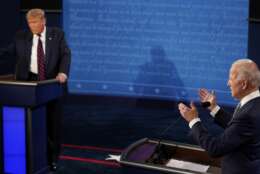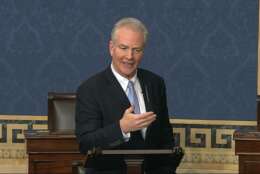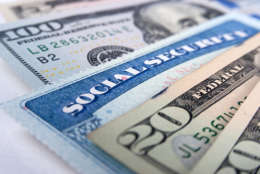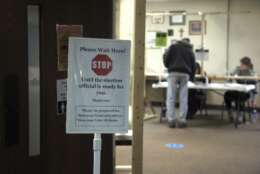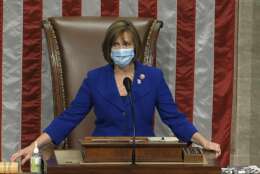National Active and Retired Federal Employees Association
-
House Democrats, good government groups and federal employee associations are urging congressional appropriators to include language blocking the president's Schedule F executive order in the next spending bill.
November 24, 2020 -
Senate Republicans released the drafts of 12 appropriations bills Tuesday morning. One of the bills includes a federal pay freeze for civilian employees, senior executives and political appointees in 2021.
November 10, 2020 -
Reaction over the president's new executive order on the creation of a new Schedule F for certain policy-making positions ranges from "forget it!" to "finally!"
October 26, 2020 -
Federal News Network reviewed the track records and campaign policies for President Donald Trump and former Vice President Joe Biden. Here's where they stand on the issues important to federal employees, including pay, benefits and government oversight.
October 19, 2020 -
Participants in the Federal Employees Health Benefits Program (FEHBP) can expect to pay, on average, 4.9% more for their health insurance in 2021. Participants may pay more or less depending on the options they choose.
October 14, 2020 -
Sen. Chris Van Hollen (D-Md.) has introduced new legislation that would make the president's payroll tax deferral optional for federal employees and servicemembers.
October 09, 2020 -
The modern day equivalent of a panic-starter is to bring up the subject of the Government Pension Offset or Windfall Elimination Provision to retired federal or state government employees, or their spouses.
September 23, 2020 -
John Gibbs, the president's latest pick to lead the Office of Personnel Management, spent much of his nomination hearing Wednesday trying to reassure senators his previous rhetoric and comments are in the past, and his three-year government career confirms he has no tolerance for discrimination.
September 09, 2020 -
Fortunate federal retirees, like people who get Social Security, usually get a catchup-with-inflation increase in their benefits the first of each year.
September 03, 2020 -
In an email sent to some civilian workers Tuesday, a large defense agency said no federal employee, department or payroll provider will be able to opt out of the president's upcoming payroll tax deferral planned later this month. All federal payroll providers are expected to "act in unison."
September 02, 2020 -
During times like this, when a pandemic is still running wild, it’s a good question. The old rules and odds don’t apply.
July 15, 2020 -
The latest budget proposal from the House Appropriations Subcommittee on Financial Services and General Government made no mention of a federal pay raise in 2021. In their silence, House appropriators are essentially deferring to the president's proposed 1% pay raise for federal employees next year.
July 07, 2020 -
Employees overwhelmingly see the importance and value in existing federal health and retirement benefits, and in many cases, these programs are a top recruitment and retention incentive, a new Office of Personnel Management survey found.
July 01, 2020 -
Given the impact of the pandemic on the economy, and on prices, it is unlikely that retirees who get cost of living adjustments most years will be getting a COLA in January 2021.
May 27, 2020 -
Although looking back on the first couple of months of 2020 might seem like the Good Old Days, benefits expert Tammy Flanagan said, “It was already destined to be pretty rocky” being an election year and all. But, then, of course, came the coronavirus pandemic.
May 14, 2020




